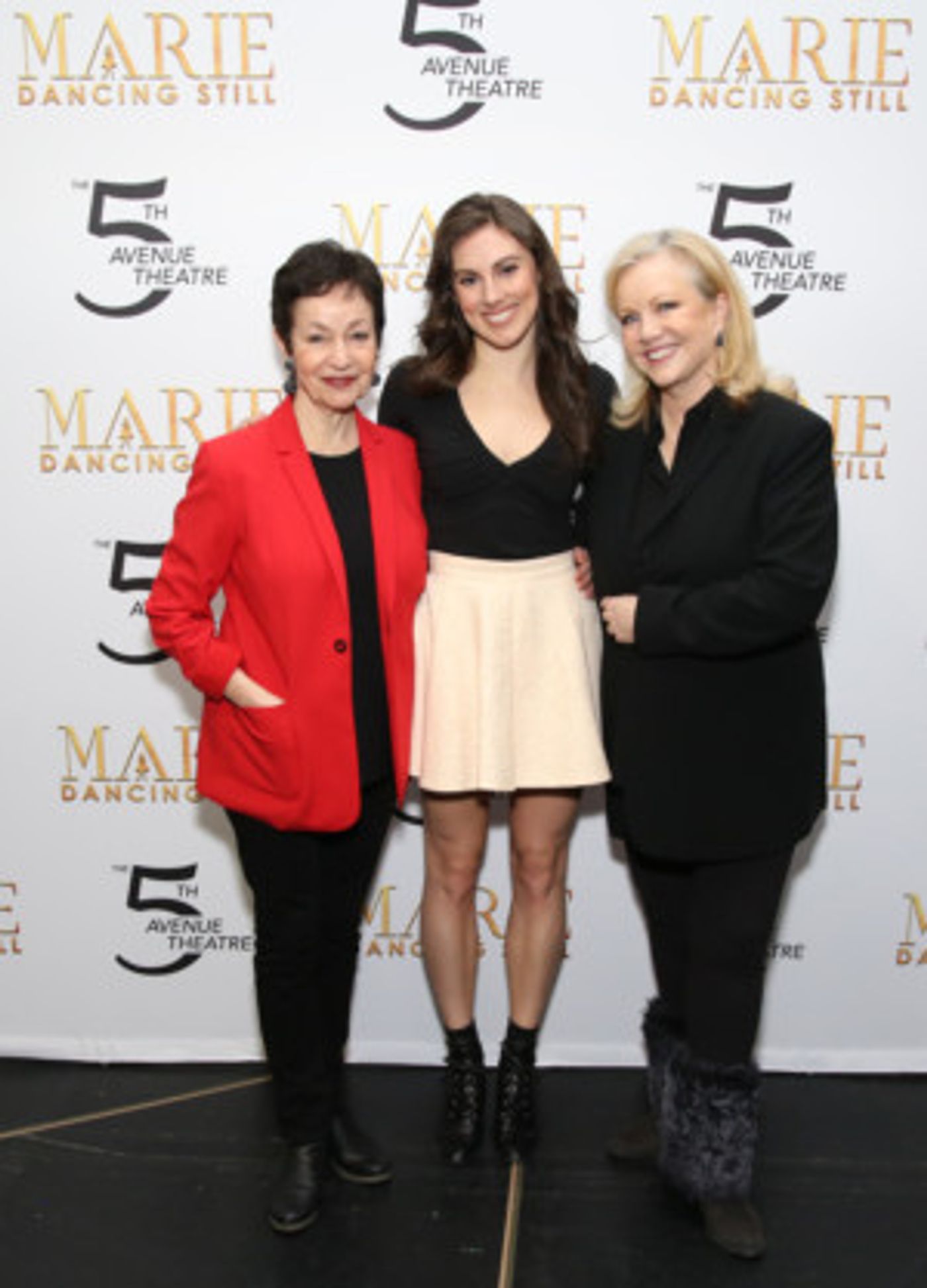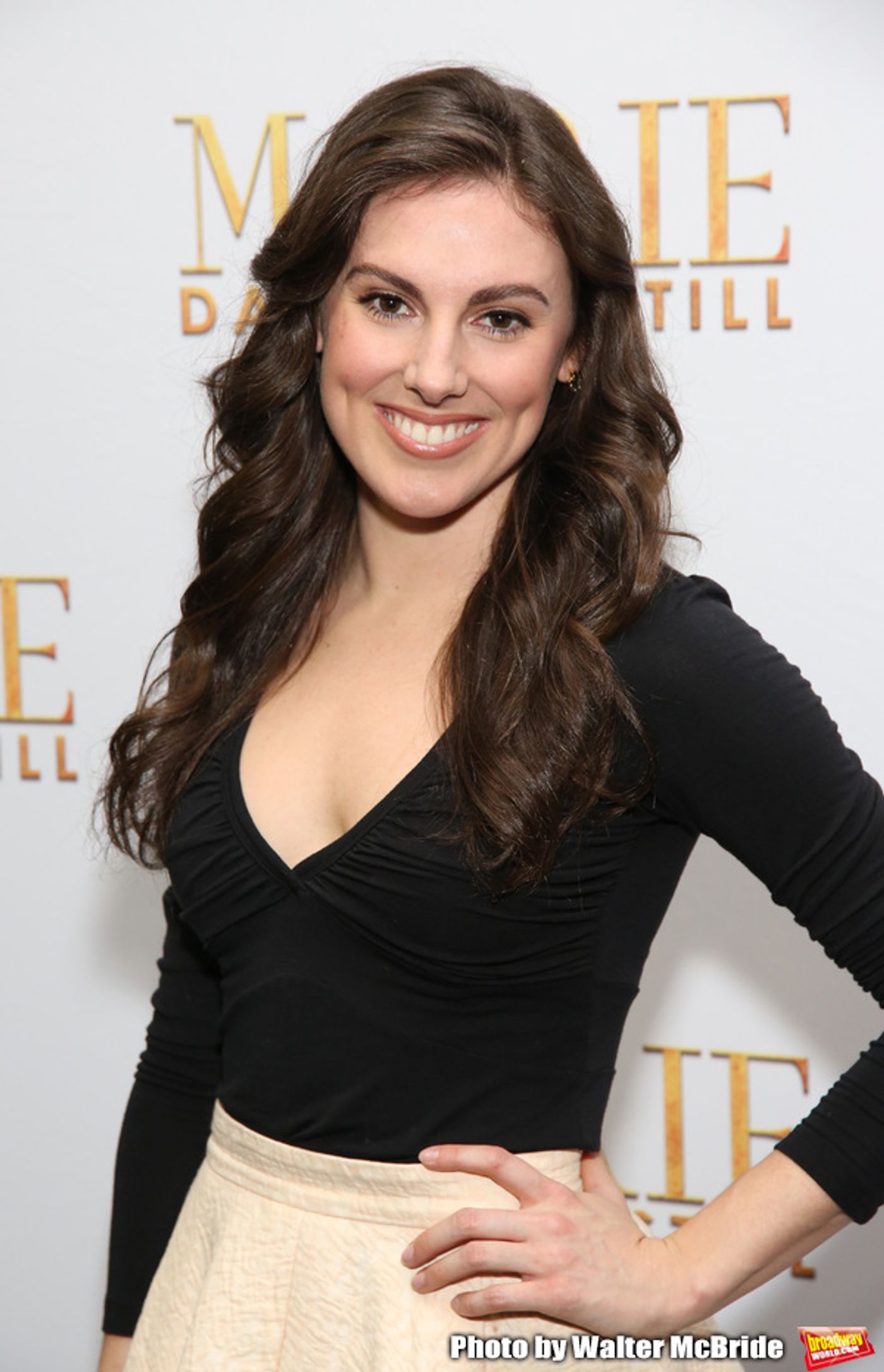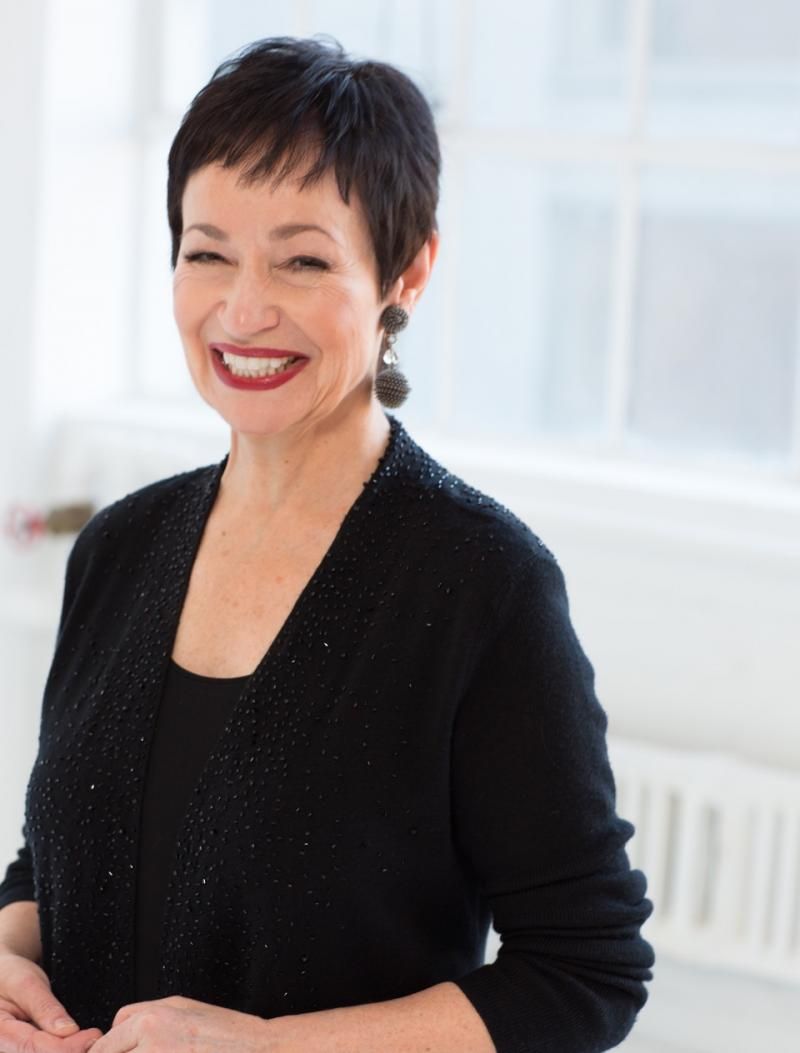She Believed She Could: Dancing into the Future with MARIE, DANCING STILL

Musical theatre is the land of collaboration, and anyone who's ever tried to write a musical knows that it can be a land filled with landmines. But for the ladies of the new musical Marie, Dancing Still, their collaboration seemed downright fated.
Marie, previously workshopped and performed as Little Dancer, is the latest musical from Broadway legends Lynn Ahrens and Stephen Flaherty. It's the first time the duo have created a story from scratch, rather than building on an existing tale (Once on This Island), historical legend (Anastasia), or novel (Ragtime). Instead, it's an original musical inspired by a sculpture by Impressionist artist Edgar Degas, which Ahrens encountered years ago.
"I happened to be in the museum in Wiliamstown, Massachusetts, where they have one of the sculptures of the little dancer... I'd seen her a million times in different museums and suddenly, instead of looking at it as a work of art, I was looking at it as a portrait of a girl, and I thought "who is this girl? What brought her together with this artist?" I got very fascinated with her... and with the whole world of the Paris Opera ballet."
Around the same time, director Susan Stroman also encountered Degas's sculpture at the Musée d'Orsay in Paris and found it intriguing. When she returned, she and Ahrens had a conversation.
"Stro and I had worked on A Christmas Carol many years ago, which ran for ten straight years at Madison Square Garden. We were old pals! In thinking about who could direct this new show, we thought who could be better. Not only is she a director and a choreographer, but she's choreographed classical ballet. So I knocked on her door, because we're neighbors, and lo and behold, she had just come back from another museum in Paris and had seen the sculpture there and had also been thinking about young Marie van Goethem."
"I felt like this was meant to be," Stroman adds. "I couldn't believe it! And right away we started working ... we discovered all these rich characters who could tell this story. Growing up as a dancer, those painting are very much a part of your life."
It was Stroman, in turn, who immediately knew which ballet star would be perfect for the role of the young ballerina with a charisma that inspires an artist and a rich inner life. Only one name was ever really considered: New York City Ballet principal dancer Tiler Peck.
"There was only one ballerina I knew who could pull this off - it had to be someone with a great personality, great depth in her acting - someone who understood the theatre. Tiler is a huge star at NYCB, but she's been in the theatre, she knows that world, and she understands what it's like to cross over. I just knew she was our girl."

While Ahrens and Stroman are probably best known for their work in musical theatre, Peck's most prominent career achievements have been in the ballet world, as a principal dancer with the New York City Ballet since 2009. Although her ballet career has brought her the most notice and acclaim, Peck actually has a tie to musical theatre as well - and to Stroman.
"I auditioned for The Music Man on Broadway for fun, and I got the part. I never, ever expected to be cast. So I actually did theatre before I did ballet professionally. Stroman, [the director/choreographer] was actually the one who said to me, 'it's kind of hard to stay on top of your technique when you're doing the same show every day, you should try and find somewhere to go during the day to really train'. And that was what sent me over to the School of American Ballet! I don't think I'd be in the NYCB if she hadn't given me that advice when I was doing The Music Man.
For Stroman - who calls Peck "one of a kind" even at that young age when they first met - the connection between music, theatre, and dance was present from a young age as well. She recalls growing up in a musical household, with her father playing piano and her family often watching the classic movie musicals.
"I started creating dances at a very early age while listening to my father play the piano... And I could see how the music and the dance went together, so arranging music for dance seemed very innate to me. I'd been in a dance school since I was five, and growing up with that kind of support is crucial. My parents made it a big deal when a Fred Astaire/Ginger Rogers movie or a Rodgers and Hammerstein movie came on - we stopped whatever we were doing and ate our dinner in front of the TV!"

She went on to work in community theatre in Delaware as a director and choreographer before coming to New York on her talents as a "song-and-dance gal," but always working towards that dream of creating theatre.
Ahrens, on the other hand, describes an early career that reveals another side of pursuing an arts career: the "day job." She worked as a copywriter at a New York ad agency early on, plucking out ditties on her guitar during breaks until her bosses caught wind of one and offered her a chance to write a song for Schoolhouse Rock, leading her to a career writing jingles before auditioning for the BMI Musical Theater Workshop. Her partnership with Flaherty, as she describes, also began in an unexpected way.
"At the end of the first year [of the BMI program], there was one last songwriting assignment, and this young, shy composer who hadn't said one word to me all year went whizzing past me on 57th Street as I was talking to some other songwriters. He literally never looked at me, but when he got to the corner, he screamed back, 'Hey Lynn! Do you wanna write a song?' And so we wrote one song together. That was in 1983, and here we are."

Marie is, at its heart, about a young person exploring the beauty and struggle of the arts, as well as a representative of the collaborative nature of musical theatre, bringing together colleagues with immense respect for each other's differing fields of expertise. Throughout our interview, all three ladies are singing each other's praises; it's an environment of mutual admiration, and one where the passion everyone has for the project and for the overall craft is evident. For Stroman, that's one of the most important things in any room, and it's at the heart of the advice she'd give to aspiring theatre artists.
"You have to believe in what you do. If you don't have a great passion for it, you shouldn't be in the business. It's that passion that you ride on. That's what keeps you afloat and allows you to ignore anyone who says, 'You can't do that!'"
"It's a compulsion to make something beautiful and fabulous and meaningful," adds Ahrens.
"The sky's the limit" when it comes to what we can achieve, Peck continues. "You have to put it out in the universe to see if it's even possible, and even when it is actually possible it still takes constant dedication, sacrifice and hard work." If there's one thing the ladies of Marie represent, it's the power of pursuing a passion and supporting the passions and dreams of others.
Videos


